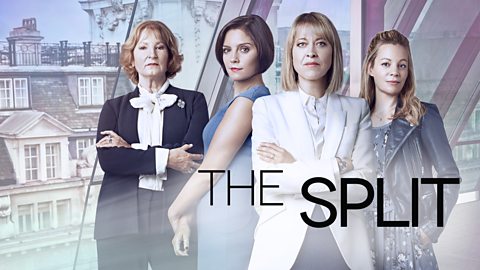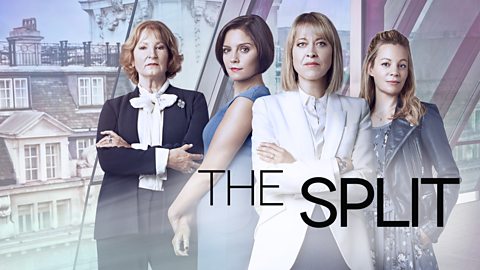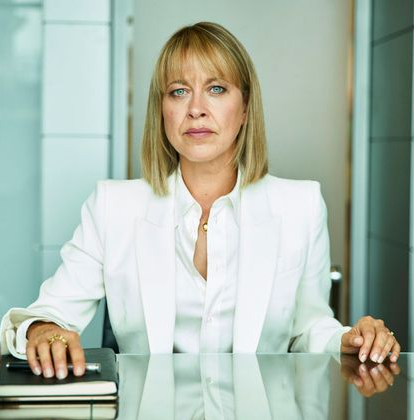The second series of BBC’s The Split is out today, and as a family lawyer you think I’d want to avoid a programme on divorce! Yet I was intrigued to see how dramatically my profession would be portrayed...
For those of you who did not watch the first series (in 2018), it tells the story of the Defoe family – and what happens after leading divorce lawyer, Hannah, leaves the family firm. She faces her sister, Nina, and mother, Ruth, on the opposing side of high-profile divorce cases. 
So what did I think? Taking my ‘family lawyer hat’ off for a moment, the programme was entertaining and compelling to watch, and I will certainly be back for Season 2 tonight!
However, as a solicitor I couldn’t help but notice the inaccurate portrayal of family law and processes for those involved.
Therefore, to help guide you through the maze of reality vs fiction, here are some of my “mythbusters” from Season 1:
- As a family lawyer you simply would not agree to see both husband and wife together. This would be a conflict of interest. The distressing scene with Mr and Mrs McKenzie is highly unlikely to happen in real life. Mr McKenzie announcing to his wife that he wants a divorce whilst they are both in front a solicitor would never happen.
- Hannah then swaps representation from one client to the other. That just simply cannot, and would not, happen in practice. If it did, the SRA (Solicitors Regulation Authority) would come down on you like a ton of bricks for acting in circumstances wherein a conflict of interest is so clearly apparent.
- References in the show to “child custody” and “access” are terms that have not been used for 29 years! We now talk about a “child arrangement” and parents can be deemed to have a “shared care arrangement”, even if there is not a 50/50 split of time. This is to get away from one parent being perceived as having more power than the other.
- Hannah’s behaviour in negotiations with her sister in ruining the agreement over their clients’ child because she was angry with her sister is ridiculous. You are not allowed to make decisions without your client’s instructions and simply would not do so.
- You cannot talk directly to your client’s ex-partner if they are represented by a lawyer.
Overall, I couldn’t help being slightly alarmed by the bad light that other aspects of the programme shone on family lawyers and the work that we do.
In particular, in one scene, Hannah was seen discussing a case with her managing partner. She was criticised for her preference to encourage settlements and that she doesn’t ‘burn up enough hours in court’. He even goes on to suggest that the divorce in this case ‘will be war’. In reality, as lawyers, we are bound by a professional duty to act in our client’s best interests and certainly racking up costs unnecessarily would not fall within doing that.
A separation or divorce is an extremely difficult and emotional time for the individuals involved. Whilst it may make a good drama, I do not consider that in reality this approach is the best way forward for the client. They will incur substantial legal costs and face months upon months of ongoing emotional distress as the matter proceeds through the court process.
The court is currently completely overworked, and Judges often hear cases without sufficient time to read through the court file and documents. This leaves great uncertainty as to the likely outcome.
As a Resolution solicitor I am keen to resolve issues as cost effectively as possible, using dispute resolution methods, such as mediation, that seek to avoid court proceedings. It is not about causing the most disruption in order to increase your client’s costs - as has been portrayed in this first episode.
Hannah’s preference for settlement should be seen as positive, and is something that is at the core of the work that most family solicitors do. There are of course cases that cannot be settled and ultimately the court must decide what a fair split of the assets is – but this should not be the preference.
My concerns were further heightened by Hannah’s involvement with a client in the midst of a dispute regarding the arrangements for a child. If there is no risk to the welfare of the child when in a parent’s care they should spend a good level of time with them. The father in this case, Rex, was a stand-up comedian and had previously used jokes about his wife within his act. Hannah’s client, the mother, appeared to be preventing Rex from spending time with the child until he agreed to remove certain ‘gags’ about her from his show. A child is not a bargaining tool when discussing other issues such as the finances; or in this case the content of a comedy show.
Of course a TV show needs plenty of excitement! No one is going to watch a show that gets bogged down in scenes of lawyers working through piles of documents and forensic reports, preparing evidence, or calmly helping their clients to agree their financial deal in an amicable face-to-face mediation process. Author John Grisham's success is based on his recognition of the excitement in high stakes court disputes, and other legal dramas, like Silk and Suits, all depend on last minute interventions and fights against the odds.
However, our true role as family lawyers is to take away the stress and worry of the legal process as much as possible, leaving you free to focus on what you need to, whether that is work or supporting your children and yourself.
The Split Season 2 is on BBC One on Tuesday 11th February at 9pm.
If you need our support, contact our dedicated Family team today:
☎ 01202 315005
📧 contact@duttongregory.co.uk
(Photos courtesy of BBC)








